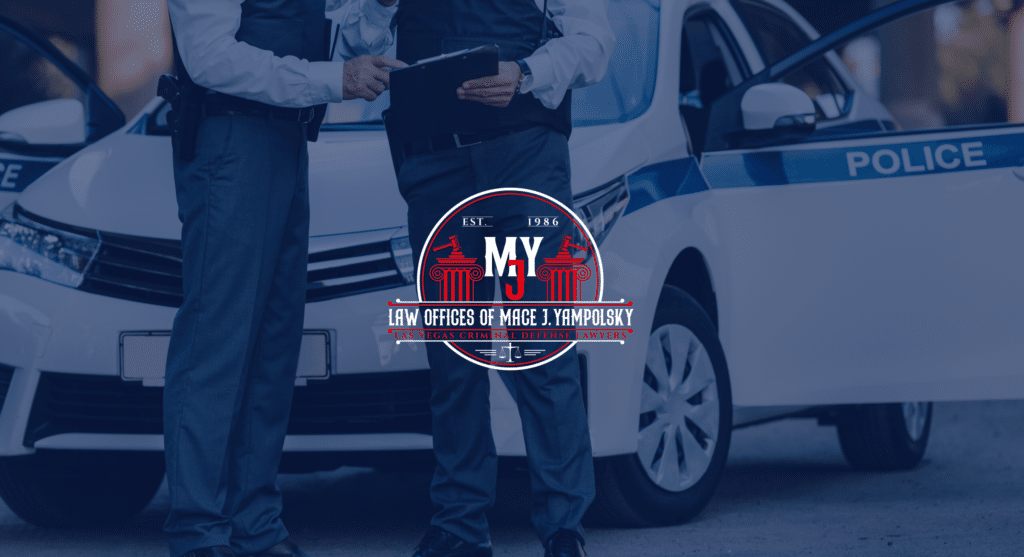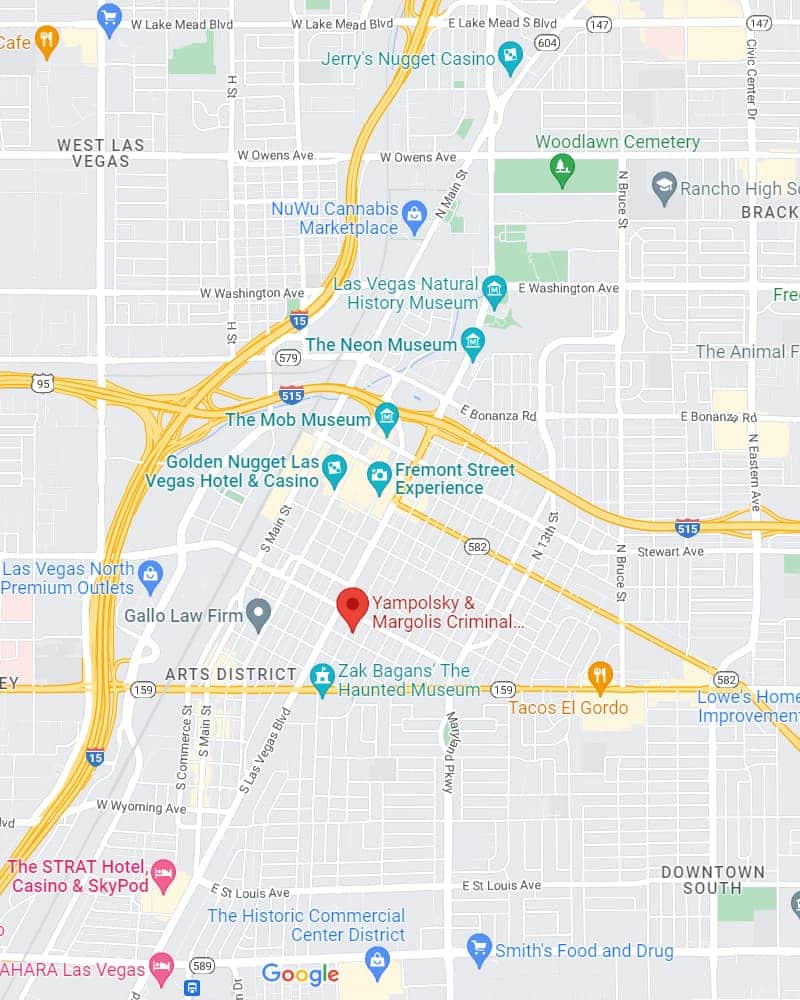If there is an arrest warrant and the attorney discovers it, he files a motion to quash the warrant and bring their client into court. The attorney may present the letter and say “My client knows he might be charged with the crime and he is not going to go anywhere. He is not a flight risk and is not a danger to the community. I have been retained for all stages in the proceeding.” More often than not, the judge will quash the warrant and grant what’s called an O.R release (release on your own recognizance), which means you don’t need to post bail.
However, because there was a warrant, the client has to do what’s called a “walk through.” This means that they will have to appear at the Clark County Detention Center to present themselves in order to be processed and then they will be released. It sounds like a pretty simple process. However, as the jail can be backed up, the process could take up to 12 hours.
In the event there is an arrest warrant and the client is out of state, depending on the circumstances, the attorney may be able to get the warrant quashed without the client’s presence. The client doesn’t need to return unless they proceed to trial. Often a written entry of plea will be accepted by the court in misdemeanor cases so that the client does not need to return at all.
Entering A Plea
In the waiver of appearance and entry of plea, document, there must be a waiver of rights that says, “I recognize I have the right to remain silent and the right to proceed to trial, the right to call witnesses on my own behalf, the right to confront the State’s witnesses and the right to make the State prove their case beyond a reasonable doubt. I am waiving these rights, the attorney can appear for the client and conclude the case.
In some cases, depending on the situation, a suspended sentence may be imposed. (If the client does everything he is supposed to do, there will be no jail time.) For instance if someone pleads guilty to a crime, such as misdemeanor possession of controlled substance, he will usually attend and complete drug counseling, pay a fine, and agree to stay out of trouble. If he doesn’t successfully complete all requirements, he will be convicted of the crime, the suspended sentence will be imposed, and there will be a jail sentence that he must serve.
In this type of situation for an out of town client, the attorney must do a written entry of plea. But, If the case is resolved and there is no suspended sentence, the attorney is able to enter the plea on behalf of the client without a written agreement. For example, the attorney may say, “Your Honor, I have authority to enter this plea. My client will plead no contest to possession of controlled substance, will pay a $500 fine and will complete lower court counseling.”
In other cases, in which the attorney is able to make a deal ahead of time, the matter can be closed during the first court appearance. The attorney would say “Your Honor, here is the completion certificate for the lower court counseling. I have my trust account check for the $500 fine. At this time, I move to have the case dismissed.” The attorney will then present the judge with an order dismissing the case and at that time would be able to seal the record.






